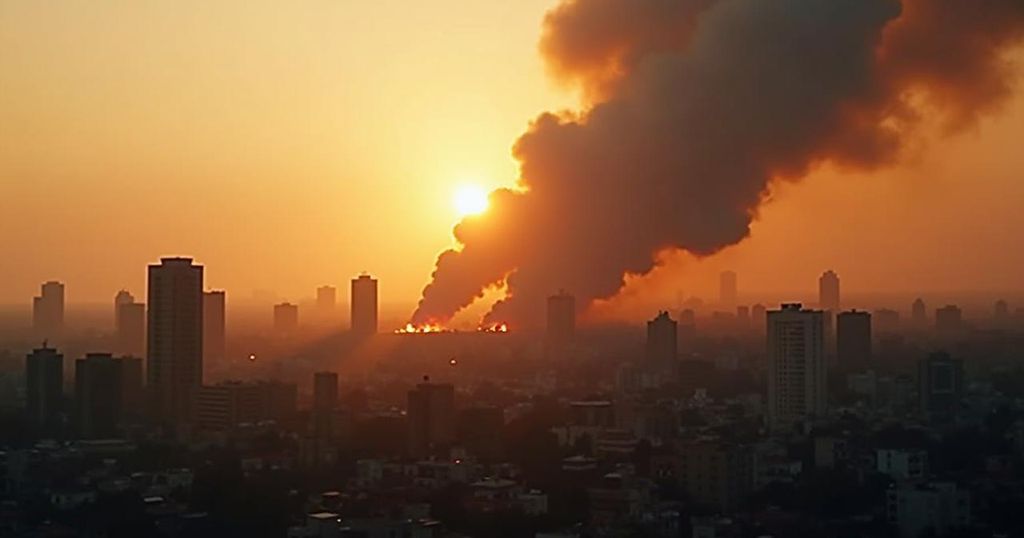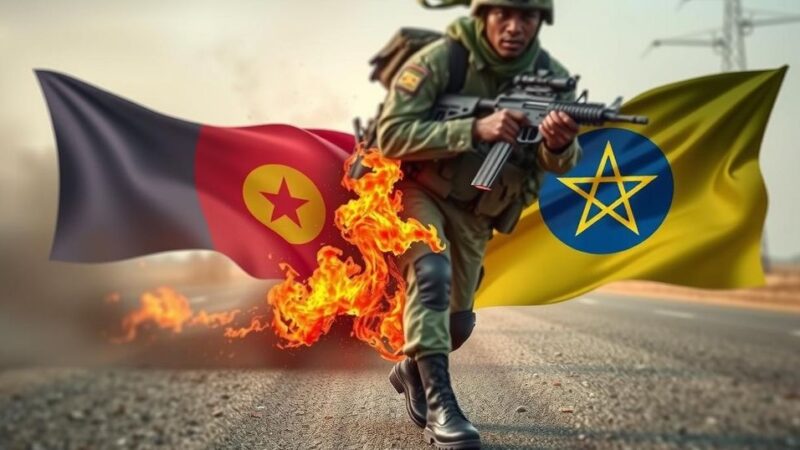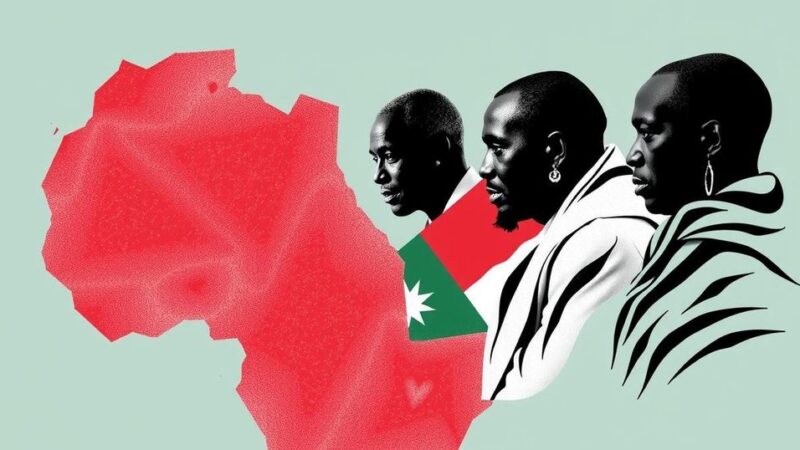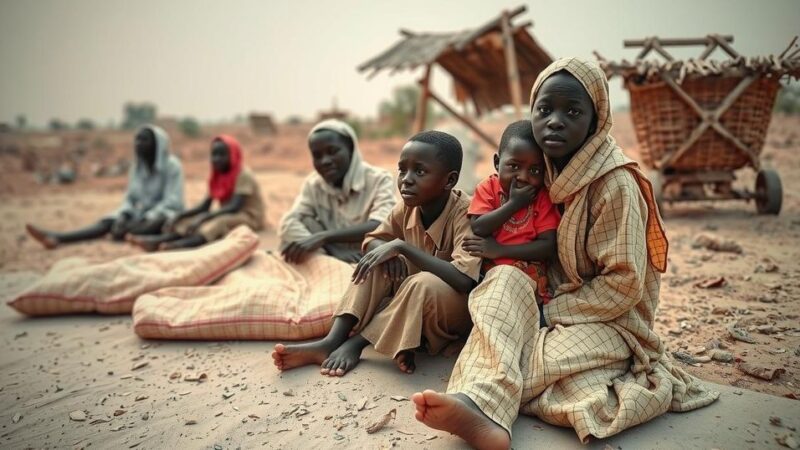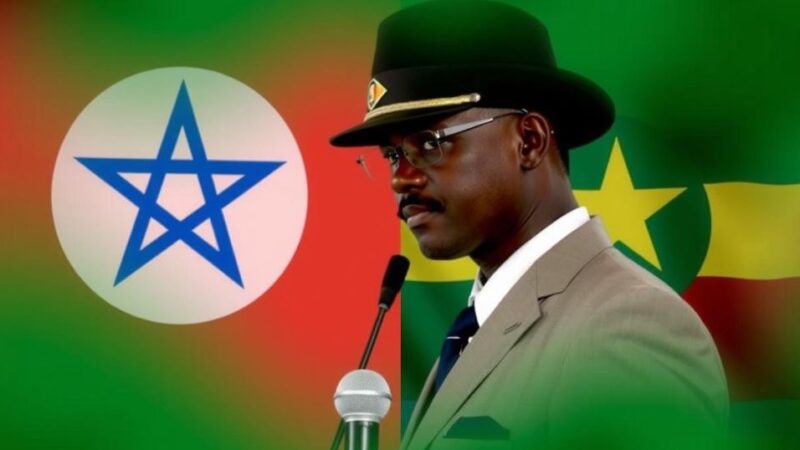Israeli airstrikes have significantly escalated in Beirut and Tripoli, targeting Hezbollah, leading to numerous casualties. President Macron calls for a halt on arms supplies to Israel amidst ongoing violence in the Israel-Gaza conflict, which has seen rising humanitarian crises and U.S. support for Israel amid regional tensions.
Israeli airstrikes intensified over Beirut, striking Hezbollah targets as reported by the Israel Defense Forces. The nighttime assault was particularly focused on the southern suburbs of the Lebanese capital, where consequential footage displayed significant fires and smoke emanating from the region. In a notable escalation, Israeli operations also targeted Tripoli in northern Lebanon, leading to the reported death of a Hamas field commander. Furthermore, French President Emmanuel Macron urged the international community to refrain from supplying arms to Israel amid the ongoing conflict in Gaza. The Israel-Gaza conflict has persisted for several months, causing rising tensions in the broader Middle East. The conflict ignited on October 7, when Hamas conducted an unprecedented attack across the border, resulting in approximately 1,200 Israeli fatalities and numerous hostage situations. In retaliation, Israel declared war and initiated a ground invasion, prompting the largest regional displacement since its founding in 1948. Recently, Hamas leader Ismail Haniyeh was killed in an assault attributed to Israel. In parallel, clashes between Israel and Hezbollah have escalated over the past year, precipitating Israel’s military operations in southern Lebanon. The intensity and lethality of airstrikes have surged, leading to over 1,400 casualties, including that of Hezbollah leader Hassan Nasrallah. The Israel-Lebanon border is plagued by a tumultuous history of violence. Within Gaza, the Israeli military campaign is increasingly recognized as one of the most devastating conflicts in this century, claiming tens of thousands of lives and pushing about half the population into critical conditions akin to famine. Despite significant pressure from Western allies to facilitate humanitarian aid, Israel has persisted in its restriction of support to the enclave. The involvement of the United States remains pivotal; notwithstanding some political tensions between U.S. officials and Israeli Prime Minister Benjamin Netanyahu, the U.S. continues to furnish arms and financial assistance to Israel and has frequently exercised its veto power at the United Nations, blocking cease-fire initiatives. The intricate and complex history of hostility between the Israeli and Palestinian factions stretches back well before the establishment of Israel in 1948, deeply intertwining the narratives of the Gaza Strip and the Israel-Lebanon border.
The ongoing conflict in the Middle East, particularly surrounding Israel and Gaza, is deeply rooted in a complex historical context that has evolved over decades. The recent escalations involving Hezbollah indicate a widening of hostilities that have persisted since Israel’s founding in 1948. The Israeli-Palestinian conflict serves as a backdrop to these tensions, fueled by a series of military confrontations and retaliatory operations. The involvement of multiple regional and international actors, coupled with humanitarian crises, underlines the urgency for a resolution to prevent further escalation and suffering.
In summary, the intensification of Israeli airstrikes in Beirut and Tripoli highlights a significant escalation in the Israel-Hezbollah conflict as hostilities rapidly spread in the region. The dire humanitarian conditions in Gaza, along with international calls for reduced arms supplies to Israel, reflect the complex geopolitical dynamics at play. Moreover, the unwavering support of the United States for Israel amidst rising tensions raises questions about future conflict resolution efforts. The enduring historical roots of this strife remind observers of the profound challenges that lie ahead in finding a sustainable peace.
Original Source: www.washingtonpost.com

